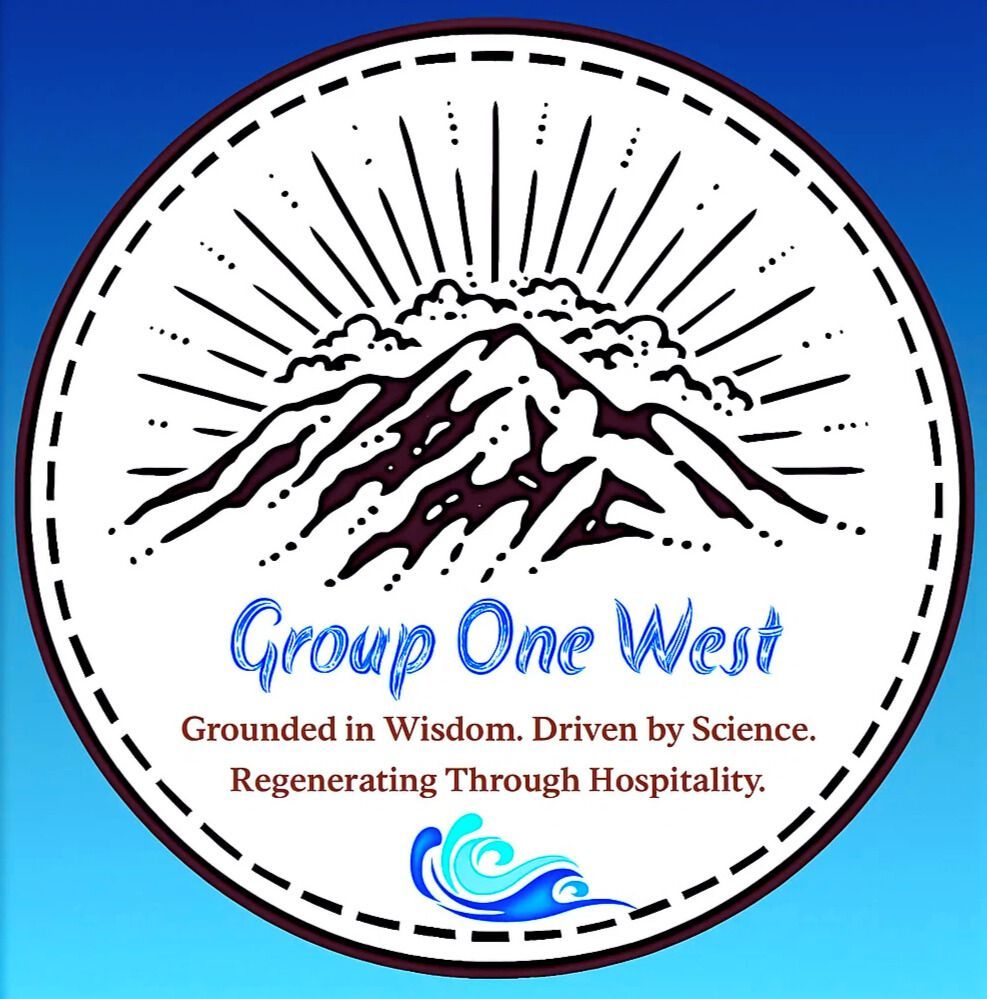From California and Denmark to Canada’s West Coast:
Why Global Climate Partnerships Inspire Our Hybrid Vision
Sam Kirsch, Founder, Group One West

Building the Hybrid Model
Group One West is developing the world’s first hybrid of a carbon-negative eco-resort and an Indigenous co-led climate research institute. Scheduled to open in 2030, the project is currently in the planning and design stage, with the next two years focused on material selection and system integration.
This hybrid model is designed to serve as a living laboratory of regeneration. Its dual mandate is clear:
- Technology acceleration: advancing frontier innovations such as bioelectricity, long-duration energy storage (LDES), and electrified supercapacitors from lab research to TRL9, or market-ready deployment.
- Environmental stewardship: blending Indigenous knowledge with advanced systems in water, energy, waste, and building design to create carbon-negative outcomes.
Why It Matters Globally
As I explored in my paper From Canada’s West Coast to the World, Canada has lagged in international sustainability rankings. Yet a single flagship project can reset trajectories. Group One West integrates:
- A hybrid microgrid (solar, wind, wave, geothermal, and bioelectricity).
- Advanced water systems, including closed-loop showers and wastewater heat recovery.
- Circular waste systems, such as hydrothermal carbonization (HTC) and anaerobic digestion, converting food waste into energy and soil.
- A 10-hectare kelp and seagrass farm and other blue carbon initiatives, sequestering more than 300 tonnes of CO₂ annually while supporting biodiversity and local food systems.
- Open-access dashboards and a digital twin, enabling researchers worldwide to simulate, test, and collaborate in real time.
Like California and Denmark’s agreement, Group One West is designed as a replicable blueprint, demonstrating how hospitality, tourism, and climate innovation can converge.
A Canadian Flagship for International Collaboration
The International Court of Justice’s July 2025 advisory opinion was clear: governments and institutions have a duty to reduce emissions and strengthen cooperation. Group One West is designed to embody that principle. It will provide:
- Carbon-negative data feeding into international reporting frameworks.
- Research partnerships and training programs, hosted in collaboration with UNITAR-CIFAL and allied universities.
- Immersive guest experiences, where every stay and every program is directly tied to climate-positive impact.
Our model brings together universities, Indigenous nations, policymakers, and technology developers in an environment where applied science meets lived experience.
The Road Ahead
California and Denmark’s partnership proves that aligned ambition can reset the global conversation. On Canada’s west coast, Group One West is preparing to demonstrate that same ambition in practice.
Every stay at our resort will contribute to decarbonization. Every conference will accelerate the testing and adoption of frontier technologies. Every innovation piloted here will bring us closer to a regenerative future.
This is how tourism heals. And this is how Canada can lead.
Follow Us on LinkedIn!
Keep up with our latest news
